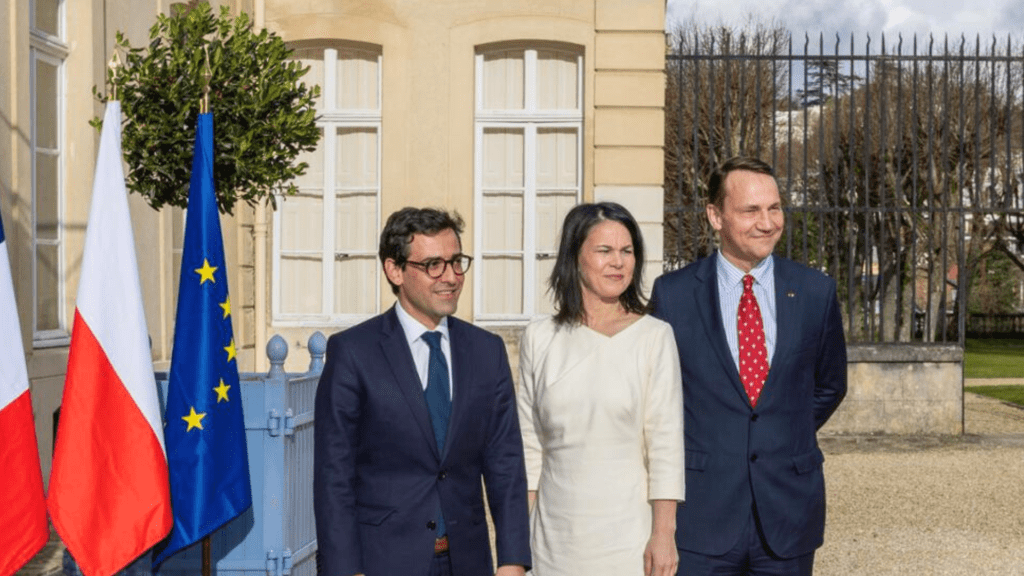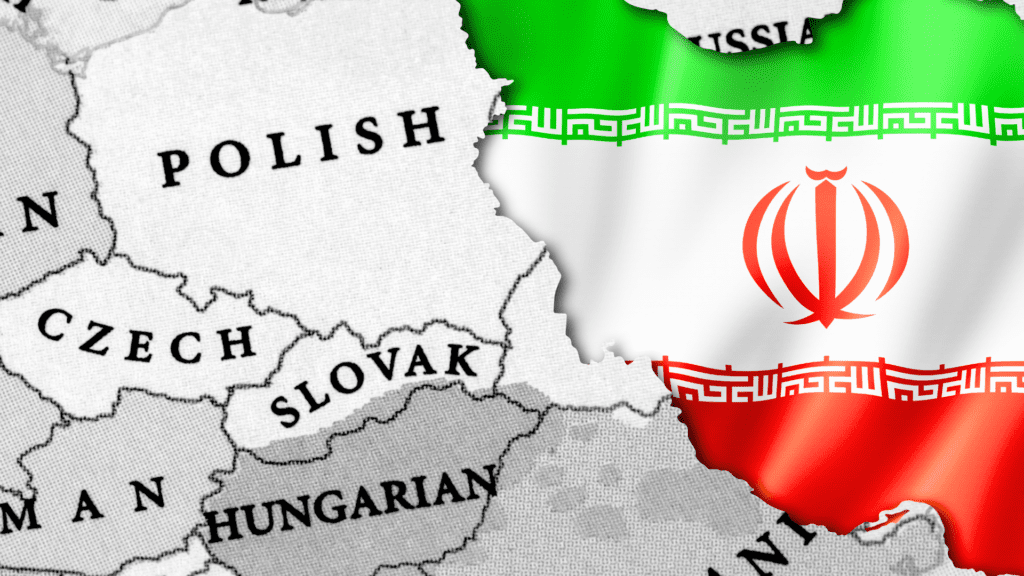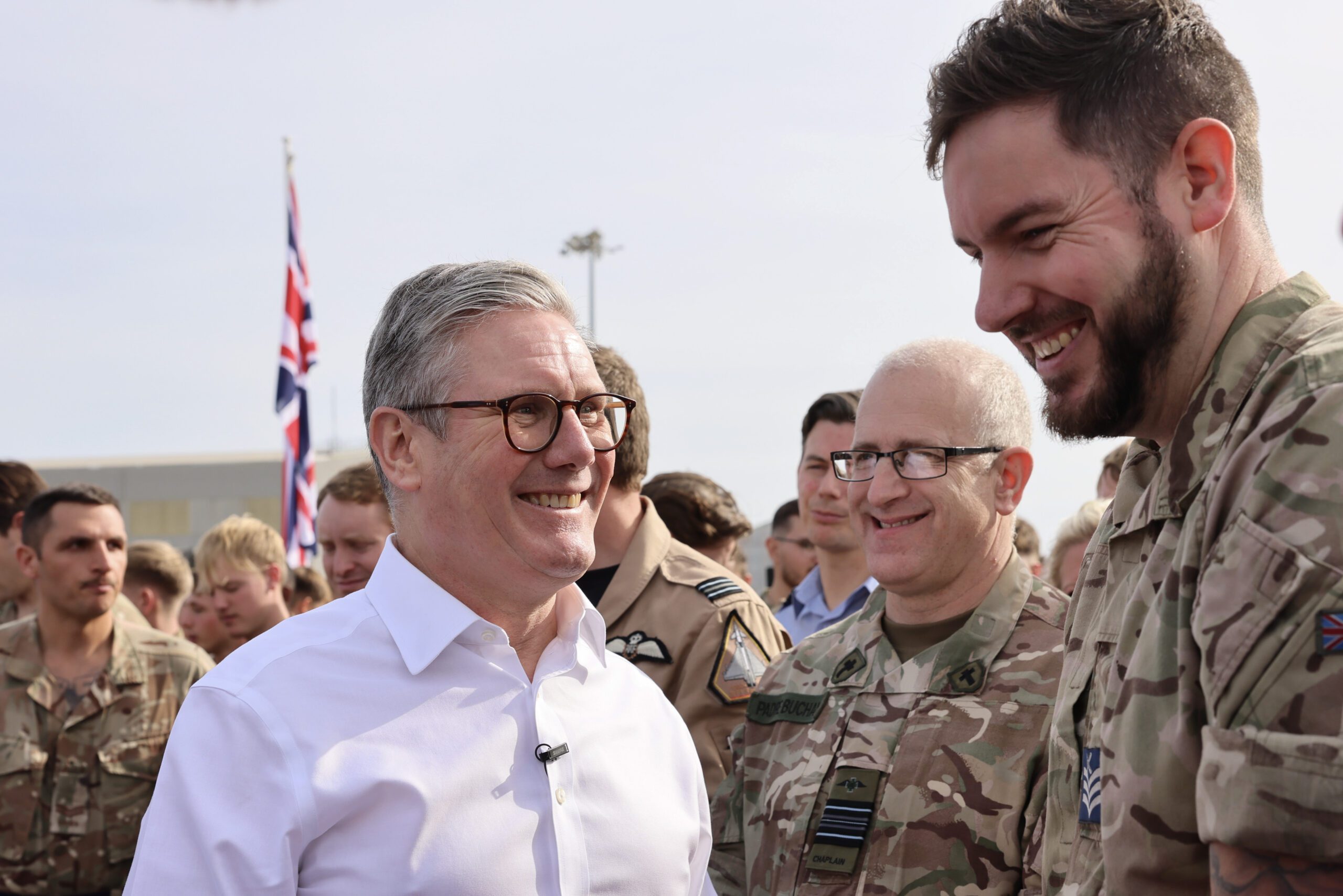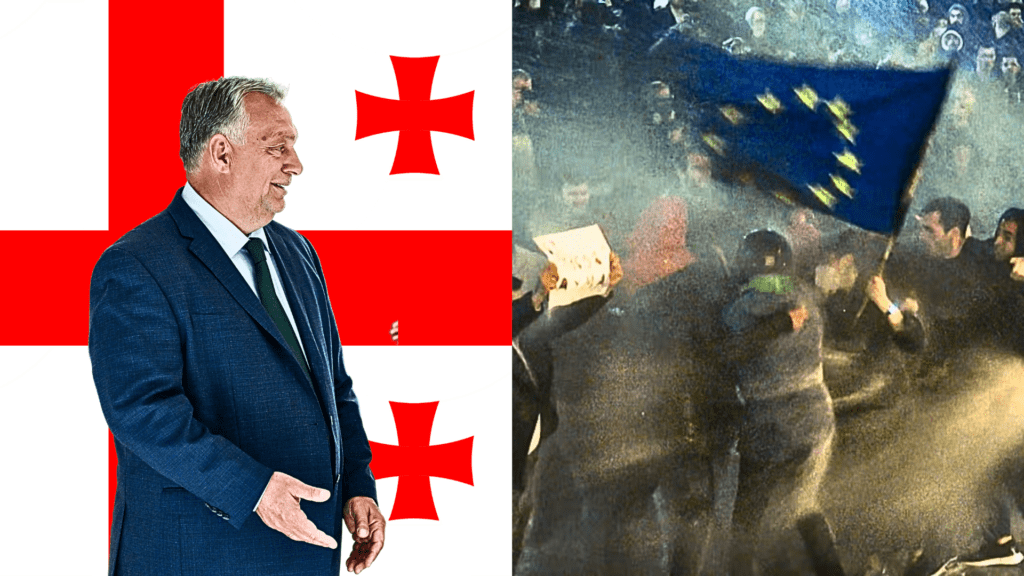NATO Foreign Ministers To Meet In Prague After Weimar Triangle Defence Talks
Source: Visegrad Insight
US Secretary of State Antony Blinken will join the NATO meeting, but not before first flying to Chişinau, amid signs Russia may be considering new actions in Moldova and is behind anti-democratic moves in Georgia.
Upcoming on Visegrad Insight:
- Márta Pardavi examines how the Article 7 procedure against Hungary may develop now that the process has been suspended for Poland.
- Philipp Fritz looks into the future cooperation and potential impact of the reinvigorated Weimar Triangle.
- Valeriia Novak makes the case for why Ukrainian integration in the EU is not only inevitable but carries with it huge economic benefits.

Weimar Triangle takes the lead on defence and democratic security
EU/regional
- 80% of EU citizens want cooperation in defence matters to be increased at the EU level – according to the latest Eurobarometer survey.
- In the face of Russia’s war against Ukraine, 72% of EU citizens also support economic sanctions on the Russian government, companies and individuals, while 70% agree with sending financial support to Ukraine.
- Such results reinforce the EU’s leaked Strategic Agenda, which says that there is “an overwhelming consensus on the aim to take greater responsibility for our security and defence” among the EU27. For more on the strategic agenda, read here.
- The W3 called on the EU to secure its defences against foreign interference before the EP elections during the General Affairs Council on 21 May.
- Their proposals included a new “European media platform” to counter disinformation, a boost to comms about EU benefits, more media literacy funding and new structured exchanges between EU governments on countering influence campaigns. Read more about these recommendations from our related report
- The Council also approved the guiding framework for the practical establishment of the EU Hybrid Rapid Response Teams.
- Poland, France, Germany and 13 other countries then signed a joint statement on democratic resilience on 22 May, further outlining some of the steps that can be taken to safeguard electoral processes and democratic security.
- The W3 Foreign Ministers also met to discuss security and Ukraine in Weimar, Germany, on 22 May.
- Radosław Sikorski, Stéphane Séjourné and Annalena Baerbock released a joint statement explaining why and how the EU must become a “geopolitical actor and security provider.”
- For more about how CEE can drive a geopolitical EU, and why Sikorski is being touted as a new defence commissioner, read here.
- The Venice Commission called on Georgia’s government not to pass its “anti-democratic” foreign influence bill.
- This comes as several EU countries and the US push for sanctions against Georgia in case it goes ahead with its plans. US lawmakers are reportedly considering imposing financial restrictions and visa bans directly on Georgian Dream lawmakers.
- At the same time, the US is also preparing a sweeping package of economic and security support for Georgia’s government, should it abandon its anti-Western rhetoric and attempts at state capture.
- Russia and China both sought to retaliate against EU financial manoeuvres.
- In response to EU plans to make use of Russian frozen assets, a Russian court has frozen the local assets of Germany’s Deutsche Bank AG and Commerzbank AG, as well as Italy’s UniCredit SpA, under lawsuits totalling over €1 billion filed by a Gazprom PJSC venture.
- In response to the EU’s investigations – with an upcoming deadline on whether or not to impose tariffs on 5 June – China threatened to unleash tariffs as high as 25% on imported cars with large engines. China’s BYD also announced plans to introduce electric vehicles that cost less than $10,000 in Europe next year.
- British Defence Secretary Grant Shapps said that London has evidence that China is sending “lethal aid” to Russia for use in Ukraine – on top of the increasing trade between the pair, which has gone up by 64% since Russia’s invasion of Ukraine.
- Shapps called for NATO to “wake up” and lay the foundations for a coordinated and alliance-wide increase in spending.
Ukraine and Moldova accession talks to begin as soon as 25 June
UKRAINE
Newsletter
Weekly updates with our latest articles and the editorial commentary.
The original article: belongs to Visegrad Insight .



